Bum-bum Paticumbum Prugurundum
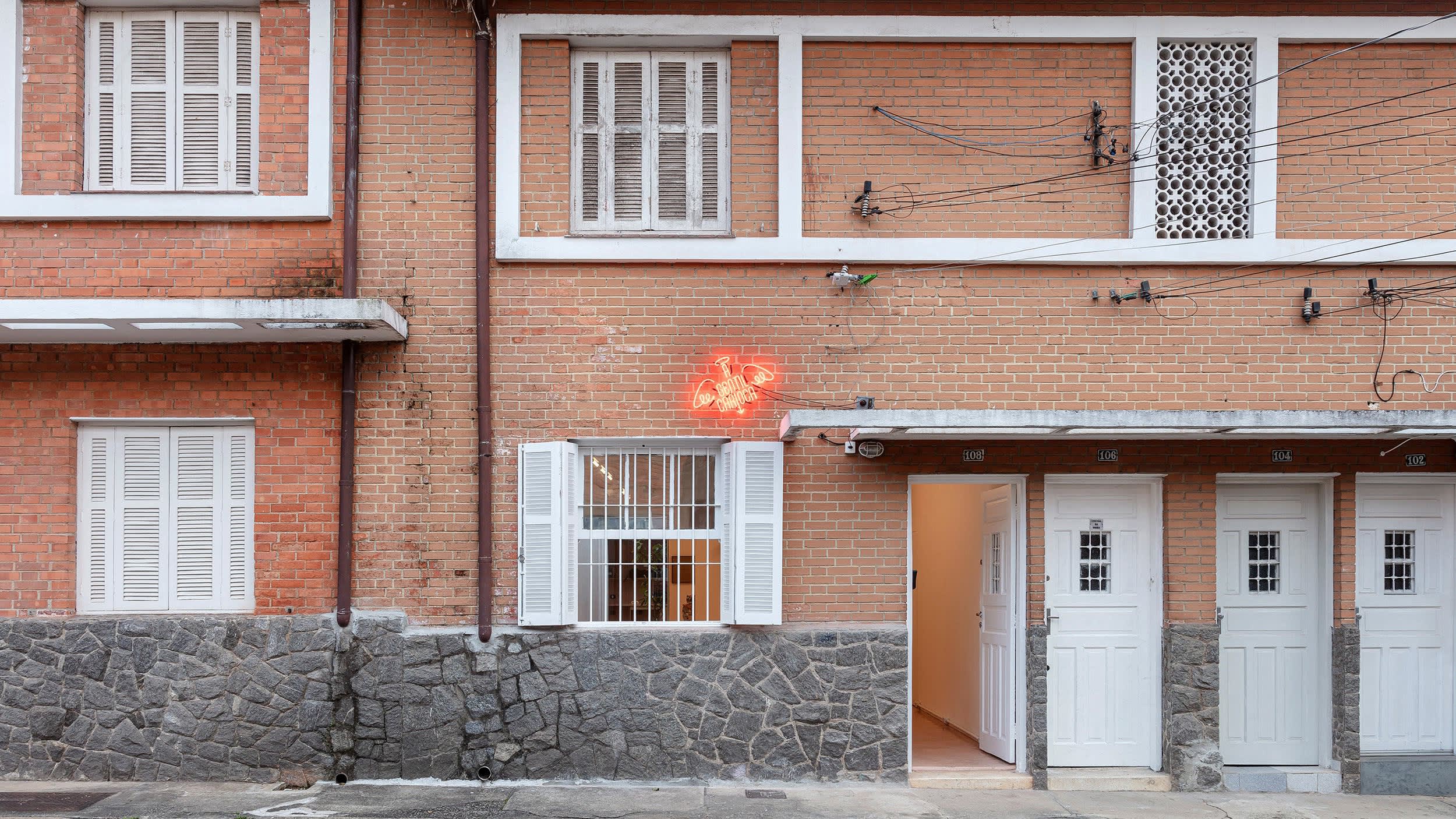
Aleta Valente, Ana Linnemann, Arjan Martins, Cabelo, Ernesto Neto, Jarbas Lopes, João Modé, José Bento, Laura Lima, Marcela Cantuária, Maria Laet, Maria Nepomuceno, Maxwell Alexandre, OPAVIVARÁ!, Renata Lucas, Rodrigo Torres, Vivian Caccuri
Bumbum paticumbum prugurundum
Dear colleagues,
Good morning,
I believe that you have all already heard, spoken, sung this onomatopoeia mantra and treatise, mantreatise, above, I believe that some of you know that this is a samba by Império Serrano, crowned champion after a breathtaking parade in 1982, which goes: “bumbum paticumbum prugurundum, o nosso samba minha gente é isso aí (“bumbum paticumbum prugurundum, our samba my people is this”) and which brings a critique in the lyrics “superescolas de samba SA / escondendo gente bamba / que covardia... (samba superschools Corp. / hiding big people / what cowardice...”). What I believe no one knows is that it identifies a moment of inflection in the history of Samba that defines a lot about who we are, and somehow speaks of humanity as a whole - it is so important and "universal", in this multiverse in which we live in, as much as Descartes' phrase “I think, therefore I am” is to modern society. This verse should be part of fundamental studies in Brazilian schools.
Bubumbum paticumbum prugurundum is a verse used by Ismael Silva, which gave rise to Império´s samba and defines the Samba rhythm as we know it today. In its origins in the terra brasilis (land of Brazil), Samba was a party by people of African descent that occured in many forms in different parts of Brazil, not necessarily defining a specific rhythm, but according to master Luiz Antônio Simas, a festive gathering moved by song, rhythm, and dance. With the end of slavery there was an exodus of formerly enslaved people leaving Bahia for Rio de Janeiro, occupying the area around the center: the port area, Tiradentes square, Saara, it was the time of the parties at Tia Ciata's house, among other ‘samba aunts’, of samba masters such as Sinhô, Donga, Pixinguinha. At the same time, another exodus, coming from the Vale do Paraíba, arrived in the capital, settling in the Estácio region, this was the group of Ismael Silva, Bide, Marçal, Brancura and several bambas. These two energies clashed, while the group from small Africa liked a samba that was more maxixado, or de roda, Estácio's group wanted a samba that would push the group, like the blocos ranchos (street group festivities), through the city, they liked fighting, to come into conflict with other groups, they wanted a rhythm that would allow the collective body to evolve, and thus bumbum paticumbum prugurundum was born.
One day, I was in an agogô class, playing with master Scofa via messenger and we started a conversation, perhaps syncopated by master Simas who had already said "Batuco, logo existo (I drum therefore I am)". We were observing that in the verse bumbum paticumbum prugurundum there is a treatise as important as the quote “I think therefore I am”, by the master Descartes, as well as the book Discourse on Method itself and several other philosophies that define the West and, consequently, modernity. There is a theory contained in it, a North (or it would be better to say a South). The language of drums and rhythms is as important as writing, but they dispense with writing, as their speech is not intelligible by the mind, but by the body. We were excited about the conversation, when knock knock knock, Lili knocked on the door bringing reality in the form of another sentence – It´s already eight o'clock, let's have the meeting? – Yes, of course – I replied, said goodbye, and when I left the room, our children were in shock, I walked past them and said – Calm down guys – and I got hit right away – Come on, man! You don't know anything and yet get involved! And I replied, already a few steps ahead and to myself – I do know, yes, I do know!
Right there was the summary, a thermometer, a demonstration of the conversation, the debate, the example of the treatise: "you don't know what's going on" comes from the same notion as I think therefore I am, from "who is right vs. who is wrong", from excluding dialectical polarities. But the "Yes, I do know" came from another place, from the bumbum paticumbum prugurundum, for a moment, it doesn't matter who was right or wrong, but that the temperature was too high, that the bumbum paticumbum prugurundum was on fire, and it was necessary to calm down, to settle down the paticumbum to soften the edges, the thorns. Bumbum paticumbum prugurundum is inclusive and works on the body/spirit, on balance, with balance. It is outside the objectivity of the logos, so it cannot be guided by objective and analytical words, it is poetic and efficient, it operates in the subjectivity of sounds, in the rhythm in the understanding of the body/heart that beats tum tum, cum bum... generates temperance, or excitement, calms down, settle down, wakes up, works the soul, heals! “bumbum paticumbum prugurundum, o nosso samba minha gente é isso aí!”.
– Ernesto Neto, 2021

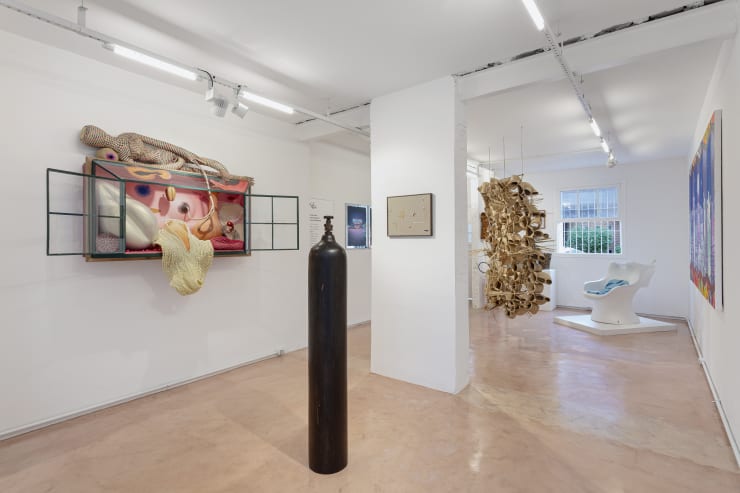
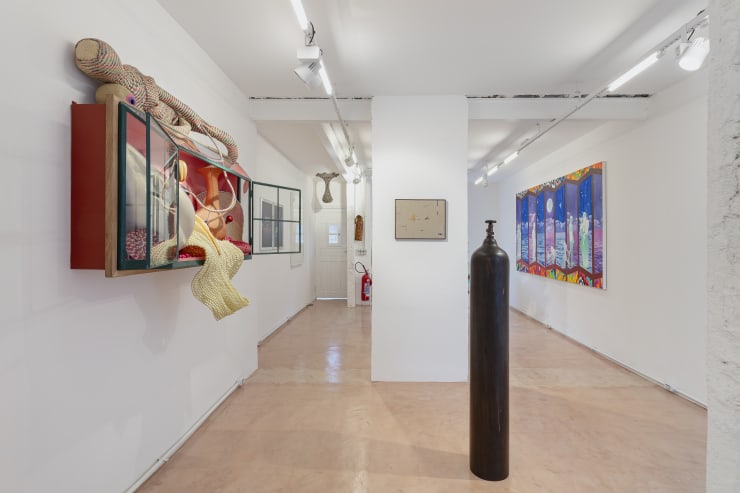
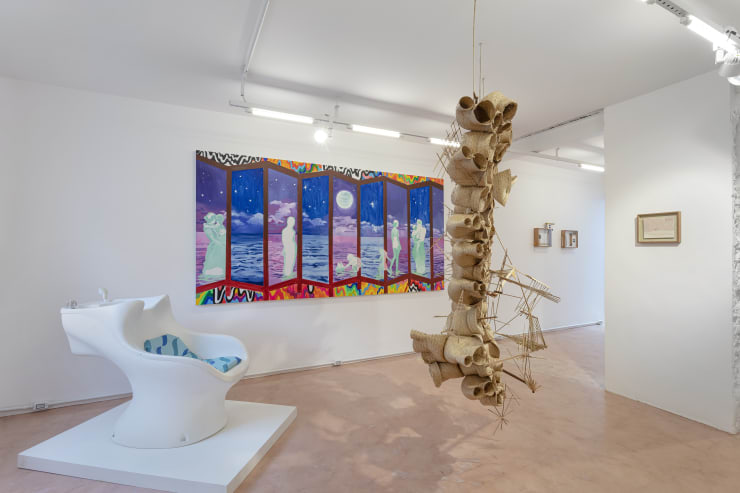
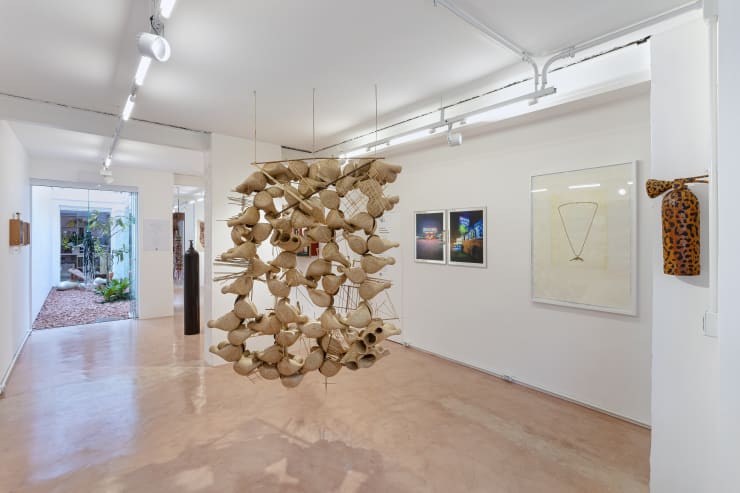
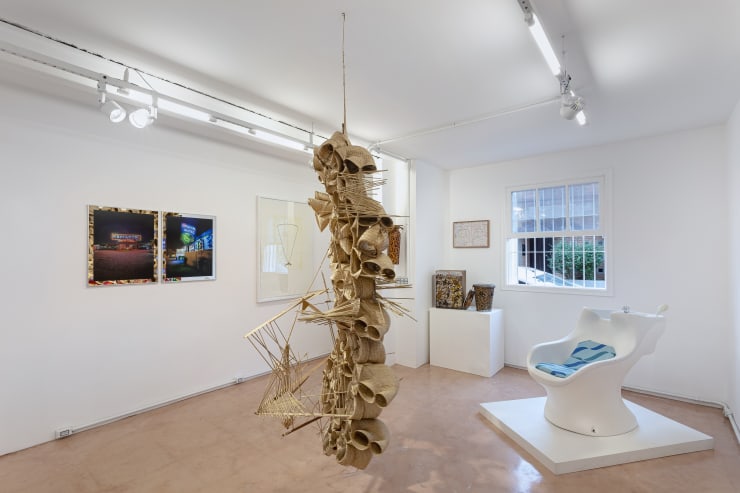
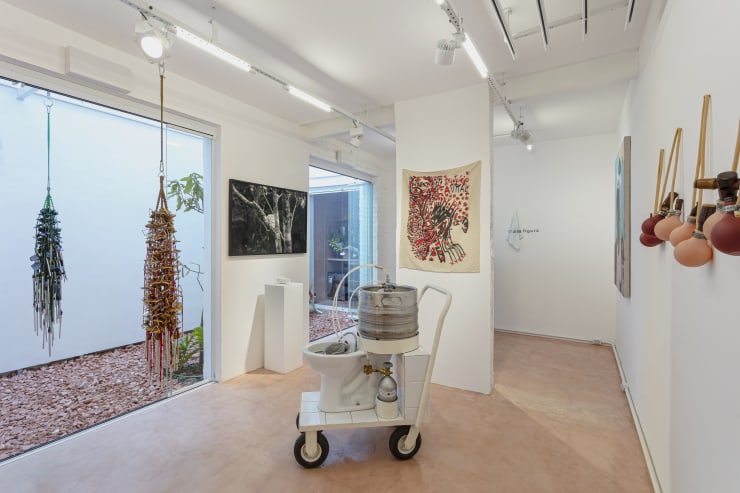
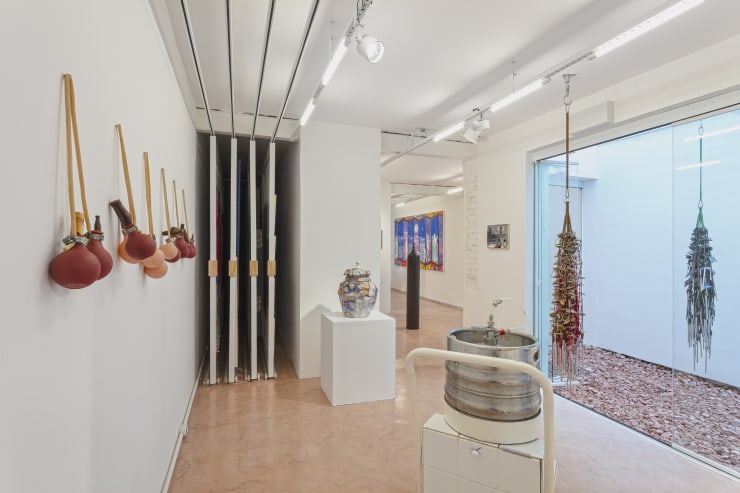
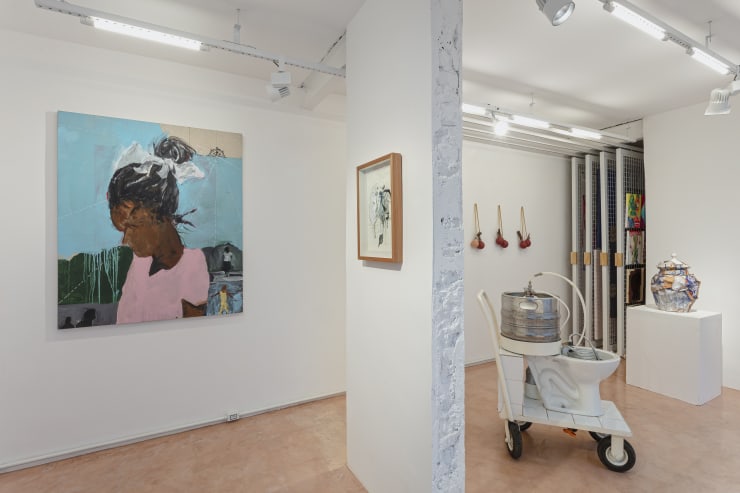

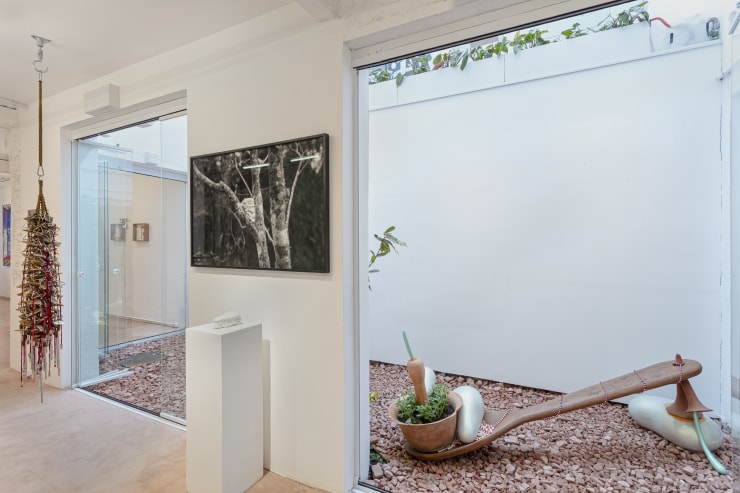
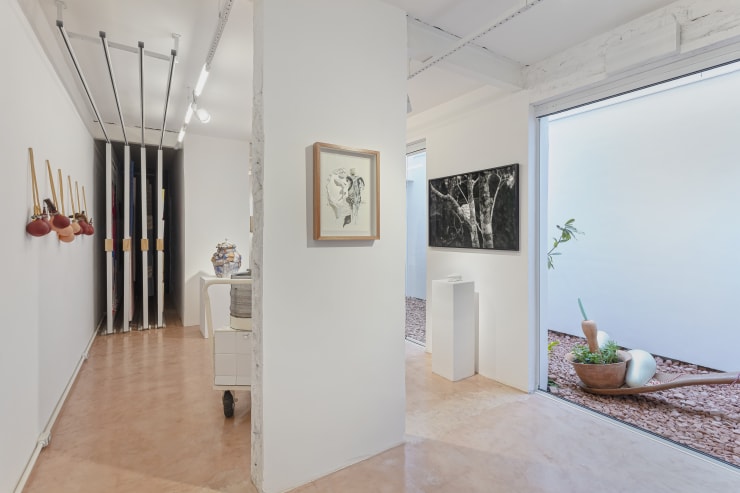
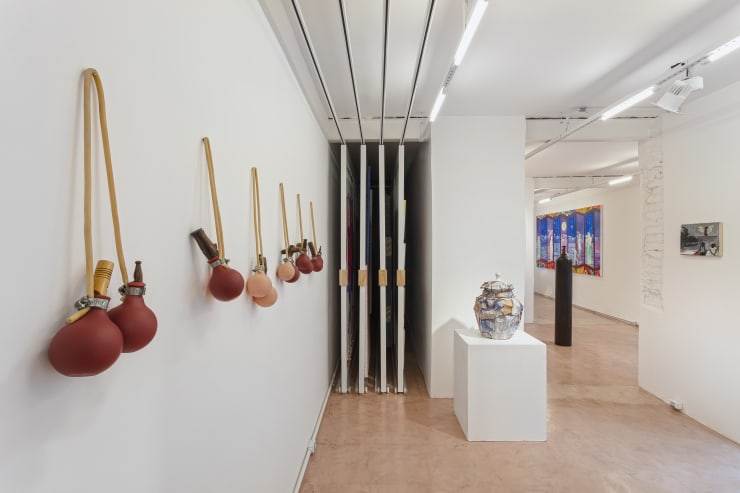
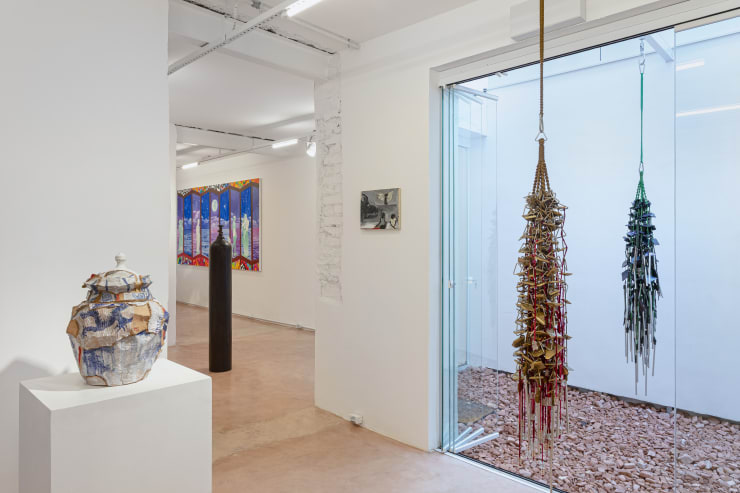
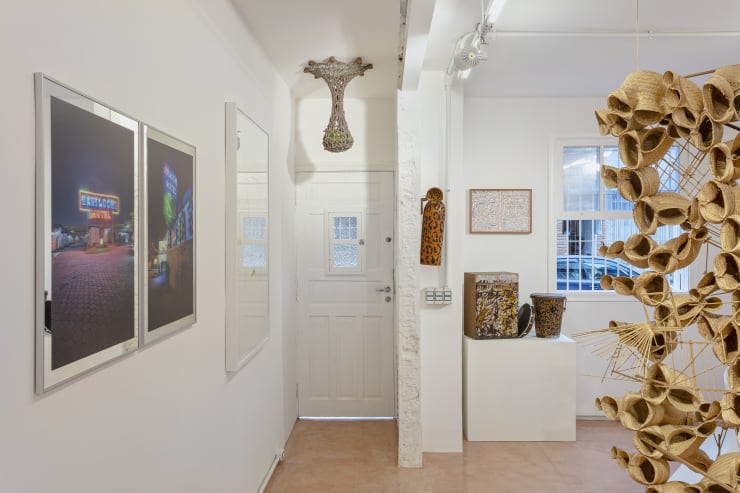


![João Modé, Construtivo [Paninho], para Ione, 2021](https://artlogic-res.cloudinary.com/w_740,c_limit,f_auto,fl_lossy,q_auto/artlogicstorage/agentilcarioca/images/view/81a0bb371c1a9e7cb0c7f3093ed1d188j/agentilcarioca-jo-o-mod-construtivo-paninho-para-ione-2021.jpg)


![Arjan Martins, sem título [untitled], 2021](https://artlogic-res.cloudinary.com/w_740,c_limit,f_auto,fl_lossy,q_auto/artlogicstorage/agentilcarioca/images/view/62a4ecda1481769e9dd5fe44f43ce007j/agentilcarioca-arjan-martins-sem-t-tulo-untitled-2021.jpg)





![OPAVIVARÁ!, Espreguiçadeira multi [Multi sun lounger], 2019](https://artlogic-res.cloudinary.com/w_740,c_limit,f_auto,fl_lossy,q_auto/artlogicstorage/agentilcarioca/images/view/c6c1fc78e91239e08df377ecb7ab2be5j/agentilcarioca-opavivar-espregui-adeira-multi-multi-sun-lounger-2019.jpg)



![Maxwell Alexandre, Sem título [Untitled], 2021](https://artlogic-res.cloudinary.com/w_740,c_limit,f_auto,fl_lossy,q_auto/artlogicstorage/agentilcarioca/images/view/641a2750e2ca9de9d34bf9d215060ae7j/agentilcarioca-maxwell-alexandre-sem-t-tulo-untitled-2021.jpg)

















